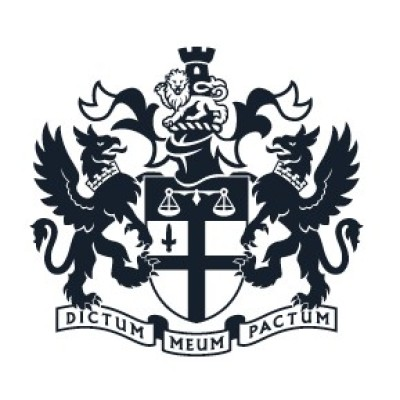Market Whirlwinds: Rathbones and Playtech Navigate Turbulent Waters
May 9, 2025, 10:55 am

Location: United Kingdom, England, City of London
Employees: 1001-5000
Founded date: 1801
In the financial world, the tides can turn swiftly. Recent reports from Rathbones Group and Playtech illustrate this volatility. Both companies face unique challenges, yet their stories reflect broader market dynamics.
Rathbones Group, a stalwart in wealth management, has seen its fortunes wane. The first quarter of 2025 brought a three percent dip in fee income. This decline stems from market turmoil triggered by Trump’s tariffs. Investors are skittish, pulling back as volatility reigns. Assets under management fell by five percent, a stark reminder of the market's fickle nature.
Outflows tell a troubling tale. Rathbones lost £784 million in the quarter, primarily from its asset management arm. The wealth management division bore the brunt, suffering a staggering £4.4 billion in market losses. This was no mere ripple; it was a tidal wave. Bespoke portfolios, though representing less than half of Rathbones' assets, accounted for nearly three-quarters of these losses.
Despite the gloom, not all is lost. Net operating income dipped only 1.6 percent, buoyed by rising advisory fees. Analysts at Peel Hunt have taken notice, slashing earnings forecasts by six percent. They downgraded the stock price target from 2,225p to 2,100p. Yet, Rathbones' share price has held relatively steady, down just 1.5 percent since the start of the year. This resilience stands in stark contrast to other financial firms, many of which have faced double-digit declines.
Rathbones is at a crossroads. The integration of Investec’s wealth management division is nearly complete, with over 90 percent of client migrations finished. This merger, valued at £839 million, could pave the way for future growth. Analysts suggest that Rathbones may soon emerge from this storm, as market conditions improve. The long-term outlook remains optimistic, with wealth management offering strategic growth opportunities.
Leadership changes add another layer of complexity. Paul Stockton, the chief executive, announced his retirement after six years. His successor, Jonathan Sorrell, steps into a challenging landscape. The new captain will need to navigate these turbulent waters carefully.
Meanwhile, Playtech's narrative unfolds with a dramatic twist. The gambling software firm recently experienced a staggering 60 percent drop in its stock price. This plunge followed a special dividend payout that consumed nearly two-thirds of its market capitalization. Playtech distributed almost £1.5 billion from the sale of its Italian consumer arm, Snaitech, to Flutter. The share price fell from 800p to a mere 316p, a stark reflection of the market's reaction.
Despite the chaos, analysts remain cautiously optimistic. Peel Hunt continues to rate Playtech as a "Buy." They argue that the company's complexity is worth the effort. By adjusting their target price, they suggest that Playtech still holds significant upside potential. The sale has transformed Playtech into a primarily business-to-business player, shifting away from its previous consumer focus.
The firm’s value now hinges on its technology platform for online gambling. Playtech provides essential services and software as a service, earning revenue through partnerships with operators. This sustainable business model, coupled with a motivated management team, could be the key to recovery.
Recent financial results offer a glimmer of hope. Playtech exceeded analyst expectations, reporting an adjusted operating profit of €480 million, surpassing the €474 million forecast. The company’s expansion in the U.S. has been particularly robust, with revenue climbing 19 percent to €252 million. Additionally, Playtech has upgraded the value of its stakes in various businesses, signaling potential growth.
Both Rathbones and Playtech are navigating choppy waters. Rathbones faces the challenge of regaining investor confidence amid market volatility. Playtech, on the other hand, must adapt to its new identity as a B2B powerhouse. Each company’s path forward will depend on their ability to weather the storm and capitalize on emerging opportunities.
In conclusion, the financial landscape is fraught with uncertainty. Rathbones and Playtech exemplify the resilience required to thrive in such an environment. As they confront their respective challenges, the market will be watching closely. The tides may shift again, but for now, both companies are learning to ride the waves. The journey ahead is unpredictable, but with strategic navigation, they may yet find calmer seas.
Rathbones Group, a stalwart in wealth management, has seen its fortunes wane. The first quarter of 2025 brought a three percent dip in fee income. This decline stems from market turmoil triggered by Trump’s tariffs. Investors are skittish, pulling back as volatility reigns. Assets under management fell by five percent, a stark reminder of the market's fickle nature.
Outflows tell a troubling tale. Rathbones lost £784 million in the quarter, primarily from its asset management arm. The wealth management division bore the brunt, suffering a staggering £4.4 billion in market losses. This was no mere ripple; it was a tidal wave. Bespoke portfolios, though representing less than half of Rathbones' assets, accounted for nearly three-quarters of these losses.
Despite the gloom, not all is lost. Net operating income dipped only 1.6 percent, buoyed by rising advisory fees. Analysts at Peel Hunt have taken notice, slashing earnings forecasts by six percent. They downgraded the stock price target from 2,225p to 2,100p. Yet, Rathbones' share price has held relatively steady, down just 1.5 percent since the start of the year. This resilience stands in stark contrast to other financial firms, many of which have faced double-digit declines.
Rathbones is at a crossroads. The integration of Investec’s wealth management division is nearly complete, with over 90 percent of client migrations finished. This merger, valued at £839 million, could pave the way for future growth. Analysts suggest that Rathbones may soon emerge from this storm, as market conditions improve. The long-term outlook remains optimistic, with wealth management offering strategic growth opportunities.
Leadership changes add another layer of complexity. Paul Stockton, the chief executive, announced his retirement after six years. His successor, Jonathan Sorrell, steps into a challenging landscape. The new captain will need to navigate these turbulent waters carefully.
Meanwhile, Playtech's narrative unfolds with a dramatic twist. The gambling software firm recently experienced a staggering 60 percent drop in its stock price. This plunge followed a special dividend payout that consumed nearly two-thirds of its market capitalization. Playtech distributed almost £1.5 billion from the sale of its Italian consumer arm, Snaitech, to Flutter. The share price fell from 800p to a mere 316p, a stark reflection of the market's reaction.
Despite the chaos, analysts remain cautiously optimistic. Peel Hunt continues to rate Playtech as a "Buy." They argue that the company's complexity is worth the effort. By adjusting their target price, they suggest that Playtech still holds significant upside potential. The sale has transformed Playtech into a primarily business-to-business player, shifting away from its previous consumer focus.
The firm’s value now hinges on its technology platform for online gambling. Playtech provides essential services and software as a service, earning revenue through partnerships with operators. This sustainable business model, coupled with a motivated management team, could be the key to recovery.
Recent financial results offer a glimmer of hope. Playtech exceeded analyst expectations, reporting an adjusted operating profit of €480 million, surpassing the €474 million forecast. The company’s expansion in the U.S. has been particularly robust, with revenue climbing 19 percent to €252 million. Additionally, Playtech has upgraded the value of its stakes in various businesses, signaling potential growth.
Both Rathbones and Playtech are navigating choppy waters. Rathbones faces the challenge of regaining investor confidence amid market volatility. Playtech, on the other hand, must adapt to its new identity as a B2B powerhouse. Each company’s path forward will depend on their ability to weather the storm and capitalize on emerging opportunities.
In conclusion, the financial landscape is fraught with uncertainty. Rathbones and Playtech exemplify the resilience required to thrive in such an environment. As they confront their respective challenges, the market will be watching closely. The tides may shift again, but for now, both companies are learning to ride the waves. The journey ahead is unpredictable, but with strategic navigation, they may yet find calmer seas.
